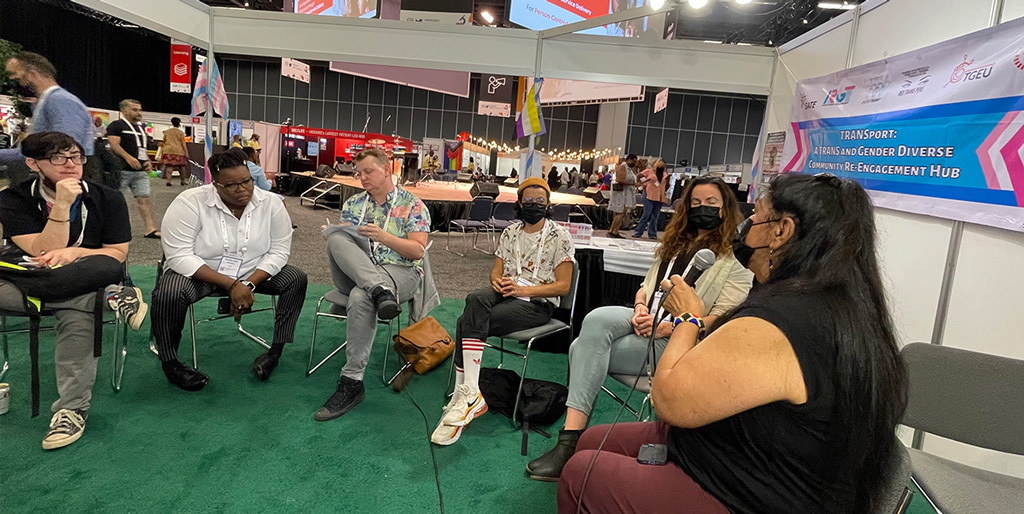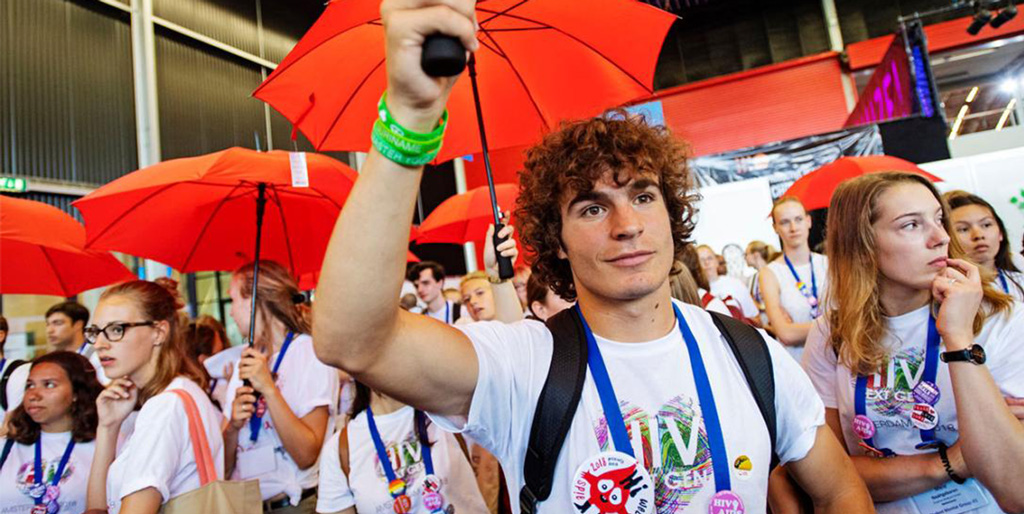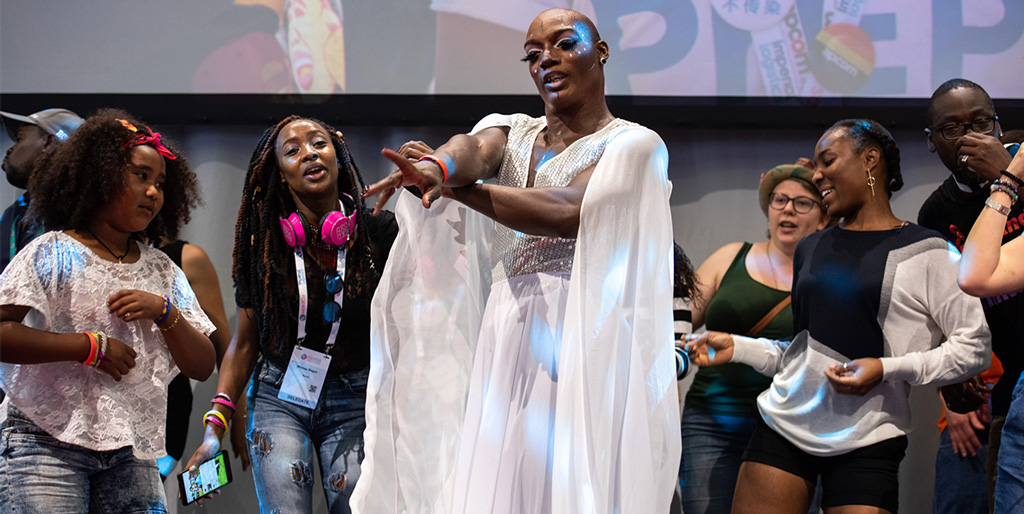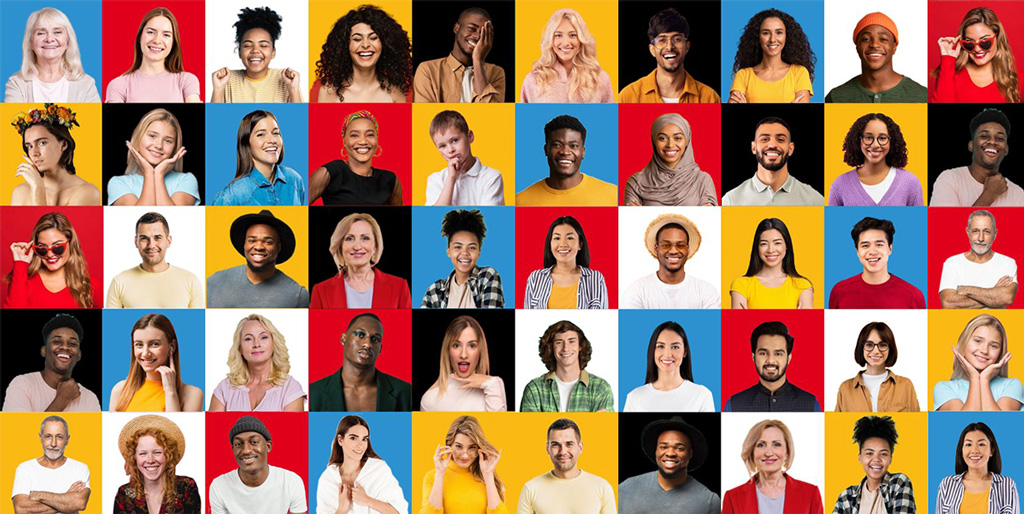“We never said, ‘We don’t have that.’ We said: “We will do everything possible.”
During the International AIDS Conference – AIDS 2024, as part of the regional #PutPeopleFirst campaign, Media Platform VirusOFF meets with leading experts from the Eastern Europe and Central Asia (EECA) region to discuss key aspects where health and human rights come to the fore. These issues not only have a significant impact on the lives of those living with HIV but also determine the effectiveness of public health strategies and programs in the region.
Walls are not the answer. #PutPeopleFirst!
You can learn more about the EECA region and AIDS 2024 at aids2024.virusoff.info and our social networks.
A small country with a big heart – this is how the Republic of Moldova came to be known after Russia’s full-scale invasion of Ukraine began. According to the Moldovan Interior Ministry, 520,000 Ukrainians crossed the Moldovan border in the first six months after the war began.
Today, that number has grown to nearly 2.5 million people. Among them were those who needed special help – people living with HIV, patients with tuberculosis and/or hepatitis, and drug users. Each and every one of them received the necessary treatment, care and support. Olena Derzhanska talked with those who needed help and those who provided it to show that compassion and charity are stronger than fear.
Olena Lavska, from the Donetsk region, has been away from her home for more than two years. She now lives in Tiraspol with her two children and husband. “For the first two weeks after the war started, we hid in a cold basement because we had no bomb shelter. And then my husband decided that we should leave,” says Olena. “Before the war, before all these events, we lived very well. We had a big apartment in our parents’ house, a dog, and both my husband and I worked.
Today, Olena and her family live in a rented apartment, her oldest son attends school and plays sports, and her youngest son attends kindergarten. Her family regularly receives humanitarian aid from local NGOs. This includes the special antiretroviral treatment she needs to stay healthy.
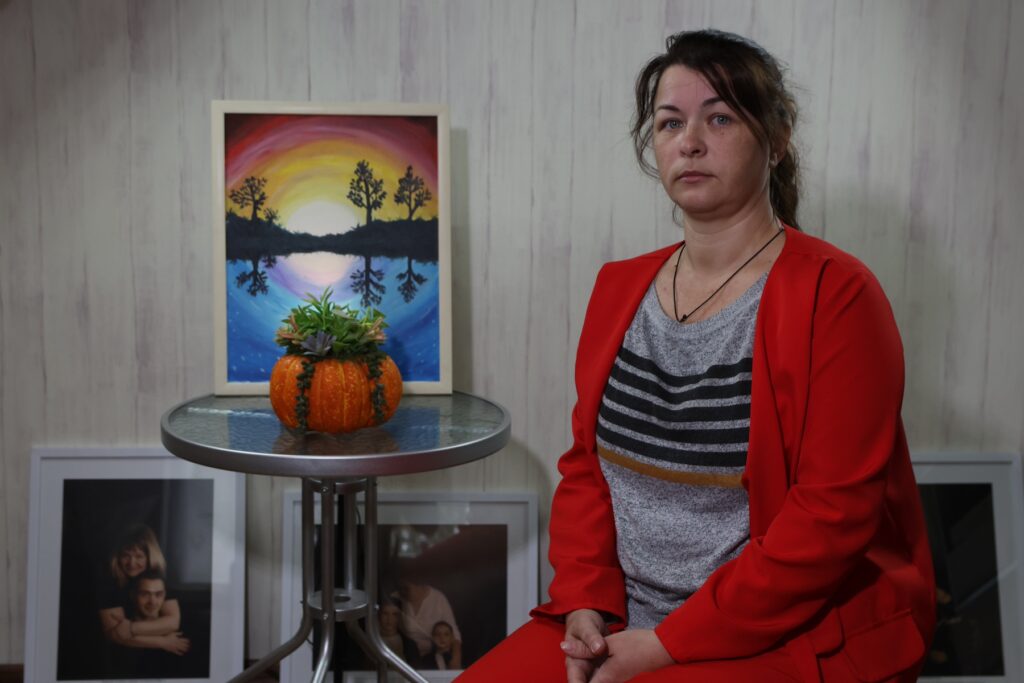
“I have been living with HIV for many years, so I know how important it is to take treatment regularly. After the evacuation, I ran out of it and went to a local NGO. They immediately provided me with the necessary medication, and I am very grateful to everyone who made this possible,” Olena said.
Before the war, there were about 260,000 people living with HIV in Ukraine. Of these, about 152,000 were on regular ARV therapy. The UN estimates that about 30,000 people living with HIV have fled Ukraine. Some were able to take the necessary medication with them, others were not.
In Moldova, patients from Ukraine receive all the services they need quickly, efficiently and without bureaucratic delays. Be it ARV therapy, anti-tuberculosis therapy, pre-exposure prophylaxis, methadone substitution therapy, etc.
According to Yuriy Krimashevsky, coordinator of the National Program for the Prevention and Control of HIV/AIDS and Sexually Transmitted Diseases, from February 2022 to date, more than 300 Ukrainian refugees have received antiretroviral treatment and had medical examinations. All of these services were provided free of charge and in confidence. “From the first days of the war, we at the Hospital of Dermatology and Infectious Diseases provided the necessary assistance to people living with HIV, pregnant women and children. Some needed treatment, some needed pre-exposure prophylaxis, some came for routine tests. We didn’t turn anyone away,” the doctor says.
Unlike Olena, Olga from Odessa did not stay in Moldova, but moved on. The woman says she came to Moldova “to nowhere”. “I have been living with HIV for 12 years, and my son is HIV-positive. Together we have been on ARV treatment for many years. Already in Moldova I decided to go to Germany. But just before I left, I found out that I was running out of medication. On the advice of friends, I turned to the public association “Positive Initiative” for help. I called the hotline number, they called me back and immediately told me where to go and what tests to take. Literally on the second day, an infectious disease doctor saw me, examined me, my son and I passed all the tests and we were prescribed the necessary treatment. They also gave me a prescription so there would be no questions at the border,” she said.
General Director of the Public Association “Inițiativa Pozitivă” Ruslan Poverga. Ruslan Poverga says that in the very first days after February 22, the organization opened a single call center that worked around the clock. People could call it at any time, and all the information received was collected in a single database. “People called with a variety of questions – some needed ARV therapy, others were finishing treatment for hepatitis, others needed harm reduction services. Of course, in addition to specific needs, people also had basic needs – shelter, food, transportation. Our capacity was limited, but our main credo always sounded like this: “We don’t have it”; we said: “We will do everything possible.
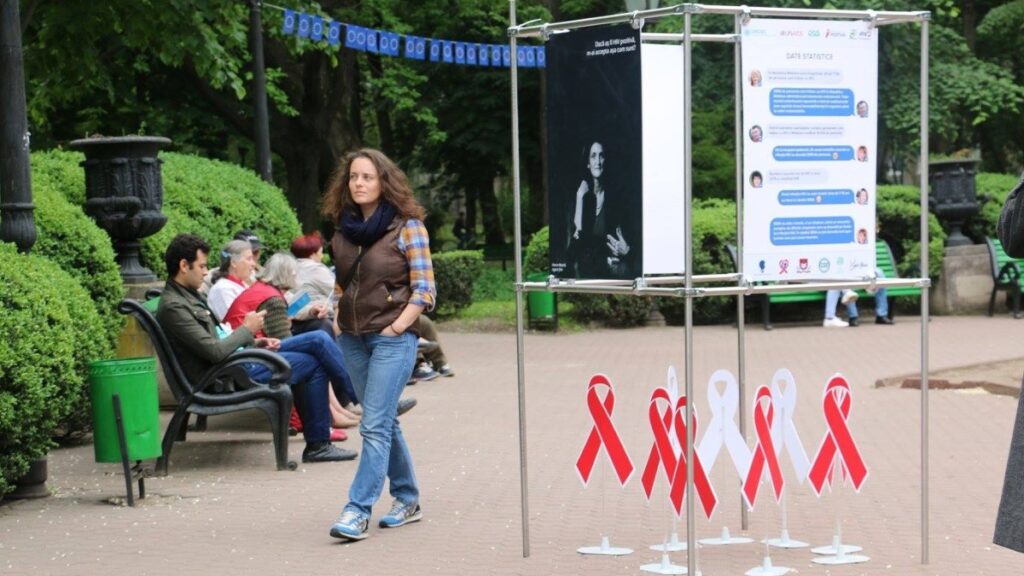
“Solidarity and mobilization of communities and people is the power that can really move mountains. And this was probably one of the decisive factors that helped us to face the situation we are still in with dignity,” said Svetlana Plămădeală, UNAIDS Moldova Country Coordinator. “At the beginning of the war, our small country with a big heart received the most refugees per capita in Europe. The mobilization of the government, citizens and society as a whole was amazing and became an example of humanity for the whole world.”
Today, about 120,00 Ukrainian refugees have officially settled in Moldova. Some have found jobs, some have gone to university, some have started new families here. But all of them want to return home one way or another.
“I wake up in the morning thinking that I want this to end as soon as possible. I want to go home, I have a brother there. Every night I pray that the rockets will stop. Because I feel so sorry for the people. They live there without electricity, without water, without gas, without heat. Of course, we like it here very much, we have become friends with everyone, but we still want to go back,” says Olena Lavskaya. “Recently we had another sleepless night. 21 rockets came and 2 rockets exploded behind our house. My brother lives across the street. I barely made it to the morning and immediately wrote: “Vadyk, how are you?” And only two hours later he answered me: “I’m sleeping, everything’s fine.” It was probably the happiest morning of my life.
Text: Elena Derjanschi
Photo: Ruslan Sholkan/Elena Derjanschi
#PutPeopleFirstEECA
Learn more about Eastern Europe and Central Asia at AIDS 2024 on our main web page: VirusOFF.info
Follow us on social media to keep up with important updates:
Instagram – Virus off
Facebook – Virus Off

